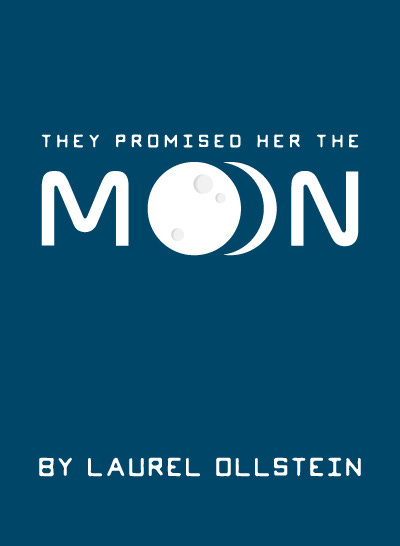“Everything Is Fine”: A High School Theatre Director’s Guide to Surviving the Most Dramatic Week of the Year-Tech Week!
Plus, your weekly round-up of theatre news you may have missed!
Welcome to The Scene, your weekly round-up of theatre news you may have missed. In this week’s email,
We dive headfirst into the glorious chaos of tech week with a survival guide for high school theatre directors—packed with practical tips, emotional truths, and just enough sarcasm to get you through that late-night cue-to-cue without
Get ready for your next must-see recommendation! Justin Borak—host of The Scene: Podcast and viral theatre TikToker—brings us a fresh "Shows You Should Know" spotlight.
The latest free read from Playscripts: They Promised Her the Moon by Laurel Ollstein.
So, raise the curtain and shine the spotlight as we dive into another thrilling week in the theatre world. Welcome to The Scene.
Calling All Student Broadway Fans: Earn $500 and Free Show Tickets with the Broadway Maven Scholarship!
Young Broadway enthusiasts can deepen their understanding of Broadway history and appreciation—and earn rewards—through the Broadway Maven Scholarship. Open to full-time students ages 16–26, this nine-week online course includes lectures, discussions, student presentations, and creative performance-related projects. Those who complete the program receive a $500 award, four Broadway show invitations, and a certificate of achievement. Classes meet every Sunday in May and June, and applications are due by May 2. Students can learn more and apply here.
Othello Opens on Broadway by Margaret Hall, Playbill | Directed by Kenny Leon, the revival stars Denzel Washington and Jake Gyllenhaal at the Barrymore Theatre. Read... | Read the Reviews...
Noël Coward's Private Lives Will Get a Broadway Revival in 2026 by Logan Culwell-Block, Playbill | The comedy, about a surprise reunion between a divorced couple, was last seen on Broadway in 2011. Read...
Olivier-Winning Operation Mincemeat Opens on Broadway by Logan Culwell-Block, Playbill | The new musical from U.K. comedy group SpitLip arrives on the Main Stem with its full original cast. Read... | Read the Reviews...
‘Wine in the Wilderness’: Beauty in Blackness by Maya Phillips, The New York Times | Written by Alice Childress in 1969, the play feels just as revelatory more than 50 years later in a new production from Classic Stage Company. Read...
She May Be the Most Powerful Producer Working in Theater by Michael Paulson, The New York Times | Sonia Friedman has “created her own theater studio system,” balancing big properties like “Harry Potter” and “Stranger Things” with more prestige work by Stoppard and Sondheim. Read...
Unfinished Business: What Theatre Schools Should Also Be Teaching by Rosie Brownlow-Calkin, American Theatre | Theatre students, taught to do the job, deserve to learn more about how to get the job. Read...
In ‘Streetcar,’ Patsy Ferran Gives Blanche a Nervy New Read by Alexis Soloski, The New York Times | The London-based actress has been heralded as one of the most talented of her generation. Still, she worried audiences would balk at her “very unconventional Blanche.” Read...
The Lost Great American Musical Returns, Over 75 Years Later by Joshua Barone, The New York Times | Kurt Weill and Alan Jay Lerner’s pioneering “Love Life” was thwarted by circumstance. Now, it is coming to Encores! at New York City Center. Read...
Big Idea Story
“Everything Is Fine”: A High School Theatre Director’s Guide to Surviving the Most Dramatic Week of the Year-Tech Week!
by Zach Dulli, The Scene
If you’re reading this, congratulations —you’ve made it to tech week. Formally known as hell week. Also known as “We open Friday?” Also known as the time in a production process when actors, crew, and directors enter a group psychosis fueled by dry granola bars, spike tape, and the kind of sleep deprivation that usually results in international incidents.
But fear not, noble director of high school theatre, brave wrangler of hormones and harmonies. You are not alone. And while I cannot physically teleport to your auditorium and prevent your soundboard from mysteriously resetting itself every 12 minutes, I can offer a lovingly sarcastic, yet hopelessly optimistic guide to help you and your actors stay relatively sane during tech week. Let’s begin.
Your Brain is Lying to You. Sleep Anyway: I know you want to go full Gandalf, shouting “YOU SHALL NOT PASS!”—but the truth is, after 9 p.m., you shall not function. After about 9 p.m., your brain turns into a bowl of microwaved oatmeal and starts assigning character arcs to the spike tape. Sleep deprivation makes you worse at decision-making, memory, and emotional regulation—basically the entire job description of a director. So, stop. Go home. Sleep. And if that feels impossible, at least take turns with an assistant or student stage manager who has youth and caffeine on their side.
Everything Feels Like a Crisis—It’s Probably Not: Someone lost their prop sword. The leading lady's voice is cracking. The sound cue came in late. Again. Here’s a hard truth: tech week is built on the illusion that everything is falling apart—and that’s precisely how it’s supposed to feel. In fact, when tech week runs too smoothly, that’s when I start to panic. Because if no one is crying, coughing, or calling for a missing mic pack, something unnatural is happening. A smooth tech week is the theatrical equivalent of the quiet toddler—you know something’s brewing. The good news is, it almost never goes smoothly. And that’s okay. The curtain will rise. The actors will find their light. And the sword? It will inevitably turn up in a senior’s backpack two days after closing. Keep your cool. Model grace under pressure. Remember: unless there’s actual fire—like flames and a fire marshal, it’s just tech week.
Rehearsal Notes: Use Them Wisely or Don’t Use Them at All: You know that urge to give a few hours of notes right after a brutal ten-hour tech run? Fight it. Actors—especially teenagers—are emotionally raw, physically exhausted, and teetering on the edge of tears or TikTok stardom at all times. So, unless a note is vital to safety or basic functionality, let it ride. Prioritize kindness. Give two compliments before a critique. Save the nitpicks for the post-mortem. Or therapy.
Tech Week is Not the Time to Rewrite Act Two: You’ve had weeks—weeks!—to decide whether Scene 6 ends with a blackout or a tableau. If it’s Tuesday of tech week and you suddenly think the show needs a tap number, I hate to break it to you: you are the problem. Respect the time. Trust the plan. Make a note for the revival.
Build in Laughter—on Purpose: Yes, your actors need to focus. Yes, this show matters. But if you don’t build moments for joy, the pressure will build up like an over-carbonated LaCroix until someone explodes in a cloud of sequins and regret. Play a dumb warm-up game. Hold a pre-show sing-along. Do a group scream in the wings. Tech week is stressful, but it doesn’t have to be joyless. Let them laugh. Let yourself laugh. You’ll all remember that more than the missed cue.
Your Tech Team Is Not Psychic. Tell Them What You Want. Nicely: Tech week is a collaboration between the creative and technical sides of the theatre—two groups who, during this week, tend to communicate with all the clarity of a fog machine on a tilt. If you're yelling things like "It needs to be more blue, but like... sadder!" you're not giving cues. You're giving abstract art. Be specific. Use actual words. Reference timestamps. Use your stage manager as a communication liaison and not just a human notepad. And above all, be kind. That 14-year-old lighting op who missed Cue 47. She’s not a saboteur. She’s trying not to fail geometry and operate a light board with 96 buttons and no labels.
Eat Real Food: An alarming number of teenagers believe Hot Cheetos constitute a food group. You cannot stop them. But you can model better behavior by actually eating a vegetable and not just surviving on black coffee and stray Twizzlers from the concessions box. Encourage a potluck or “snack squad” system. Feed your cast, feed your crew, and most importantly: feed yourself. The show runs better when everyone’s blood sugar isn’t actively plotting against them.
Some Things Will Break. That’s Not a Sign—It’s Just Gravity: Someone will drop a prop. A microphone will go rogue. A costume zipper will fail at the worst possible moment. This is not a test. This is the job. Theatre is live. Theatre is human. Theatre is, at its core, a controlled catastrophe with a great lighting plot. Your job is not to prevent every disaster. Your job is to stay calm enough that your students learn how to handle chaos with grace and laughter instead of panic and group crying in the wings. (Although, let’s be honest, there will be crying in the wings. That’s also normal.)
Students Are Looking at You Like a Lighthouse. Stand Tall: You are the steady beam in the middle of their emotional hurricane. They are looking to you for stability, approval, and occasionally snacks. So try—try—not to melt down in front of them when the fog machine floods the stage 16 minutes early and won’t shut off. Model the behavior you want from them. Show them what problem-solving looks like. Use humor. Use patience. And when in doubt, remind them that “theatre is problem-solving at the speed of story.” They’ll nod like they understand. They don’t. But they’ll remember it later when they’re directing in college, and they do.
Trust the Process (and the Kids): This one’s big. At some point, you’ve got to let go. And yes, that’s terrifying—especially if you’ve seen your lead try to exit stage left into a wall. But high school actors are more resilient than you think. The adrenaline of opening night does wild, beautiful things to young performers. So trust them. Guide them. But let them fly, even if it’s on a slightly wobbly zipline held together with gaffer tape and a prayer.
Find the Joy (Even in the Dumpster Fire): If your entire tech week experience is a slow-motion stress scream, you’re missing the point. This week is hard—but it’s also beautiful. It’s when your students discover what they’re capable of. It’s when your stage manager finally nails the transition that’s been haunting their dreams. It’s when your shyest freshman glows under the spotlight like they were born to be there. Celebrate those wins. Out loud. To the room. Often. Theatre is hard enough without making joy a luxury. Make it standard. Make it part of the culture. Laugh at the mishaps. Cheer the small victories. And if the whole scene collapses but they stay in character and keep going? Give them a standing ovation right then and there.
Remember Why You’re Doing This: You’re not just staging a play. You’re giving students the space to be seen, to be heard, to be brave, to be human. You’re building community. You’re creating memories. You’re changing lives in a way that no standardized test ever will. And yes, it comes with long nights and messy rehearsals and the occasional onstage nosebleed. But it also comes with magic—the kind that only happens when the curtain rises and a group of young people become something bigger than themselves. That’s why we do this. That’s why you do this.
So here's to you, high school theatre director. May your cues be tight, your actors be hydrated, and your principal not pop in during the one tech run where everything falls apart. Tech week is a beast. But it’s your beast. You’ve tamed it before, and you’ll do it again. And when you’re sitting in the back row on opening night, watching it all come together—watching them come together—you’ll remember that it was worth it. Every late night. Every mic check. Every dramatic sigh. Now go conquer the week. And maybe…order yourself something from Uber Eats. You’ve earned it.
Shows You Should Know
subText by Tyler Dwiggins
About: Tyler Dwiggins’s Subtext is a hilarious and modern vignette play that explores the feeling of being a person in the digital age, where everything is just a click away. The play is full of scenes that explore dating on your phone, capturing the perfect selfie, and hard launching your relationship on social media. Dwiggins does a fantastic job using comedy to explore some far-too-relatable situations. If you love doing classic vignette plays like Almost, Maine, and Community Garden, this play is perfect for you.
Rating: PG/PG-13 | Casting: 13W, 7M (5-20 actors possible: 3-13 W, 2-7 M) | Genre: Comedy Vignette Play | Run-Time: 90 Minutes
Click here to learn more about subText. And don’t forget to check out The Scene Podcast!
West End Stereophonic Finds Full Cast by Margaret Hall, Playbill | The David Adjmi play made history last year by earning 13 Tony Award nominations, the most of any play, ever. Read...
London's The Mousetrap Plays Milestone Performance by Andrew Gans, Playbill | Guinness World Records was on hand to celebrate the occasion. Read...
Burlesque the Musical Sets West End Premiere by Andrew Gans, Playbill | Steve Antin's new musical features songs by Christina Aguilera and Sia, plus new music by Todrick Hall and Jess Folley. Read...
Jonathan Bailey Becomes a Shakespearean Baddie in New Production Shots of London Richard II by Logan Culwell-Block, Playbill | The Wicked film star is playing the title role in a new production directed by two-time Tony winner Nicholas Hytner. Read...
Bull Durham Musical Will Launch Paper Mill Playhouse 87th Season by Andrew Gans, Playbill | The 2025-2026 season at the New Jersey venue will feature four additional musicals, including Disney's Frozen. Read...
Kennedy Center Postpones Legally Blonde—But Not Because of Trump, They Say by Logan Culwell-Block, Playbill | The cancellation is the latest to befall the Washington, D.C. venue. Read...
Casting Complete for The Shark is Broken at George Street Playhouse by Molly Higgins, Playbill | Written by Ian Shaw and Joseph Nixon, the work takes audiences behind the scenes of Jaws. Read...
Signature Theatre Casts Its Hedwig and the Angry Inch by Andrew Gans, Playbill | Ethan Heard will direct the John Cameron Mitchell-Stephen Trask musical at the Virginia venue. Read...
Free Reads of the Week
Read entire plays for free! Playscripts offers a selection of full-length and one-act plays that you can access for free, which is ideal for use in theatre productions, school performances, or competitions. To explore these titles, click on the cover image below or select the "READ FOR FREE" button at the bottom of this section. This action will direct you to the play's page on the Playscripts website. Once there, click "READ NOW" to begin enjoying the play immediately!
They Promised Her the Moon by Laurel Ollstein
The Story: The first American woman to test for space flight, Jerrie Cobb, steps into an isolation tank for a record-breaking nine hours as her memories unfold before her, from learning to fly a plane as a child in Oklahoma to testifying in Congressional hearings about the under-the-radar all-female Mercury 13 space program. They Promised Her the Moon is a compelling drama based on a true story about the challenges of sisterhood and fighting for the greater good.
Casting: 3 W, 3 M, (6-18 actors possible: 3-15 W, 3-12 M) | Run-Time: 100 - 110 minutes | Set: Flexible
Was this email forwarded to you? Don’t miss out on future stories — Subscribe to The Scene and get your weekly dose of theatre sent straight to your inbox.














